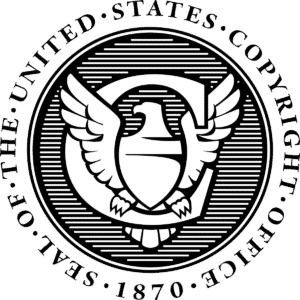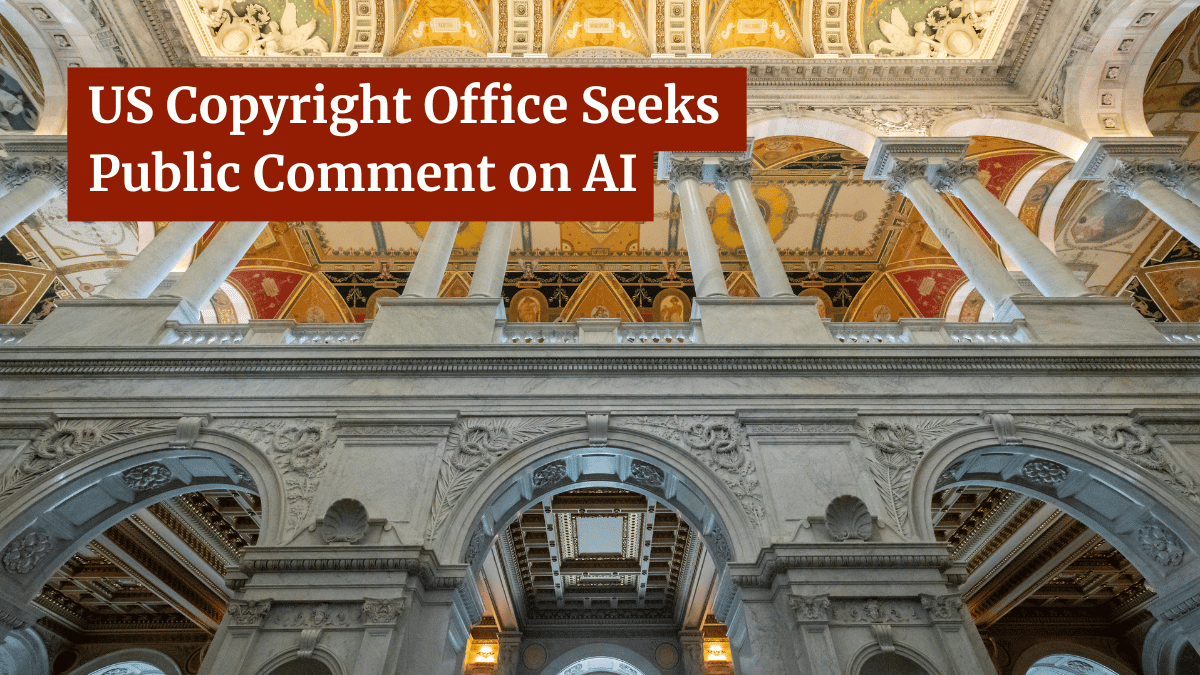US Copyright Office Seeks Comment on AI

In an announcement posted earlier this week, the United States Copyright Office (USCO) has opened a public inquiry on the issue of copyright and generative artificial intelligence (AI) systems.
The comment period is currently open and initial comments may be made between now and October 18, 2023. After that, replies to earlier comments are due by November 15, 2023.
For those interested in making a comment, the USCO is looking for feedback on four issues:
- The use of copyrighted works to train AI models.
- The copyrightability of material generated using AI models.
- The potential liability for infringing works generated using AI systems
- The treatment of generative AI outputs that imitate the identity or style of human artists.
The USCO acknowledges that the fourth issue is not directly related to copyright, but they say that they have heard a great deal on the topic and that it may pertain to related issues, such as publicity and unfair competition.
On the first and third issues, the USCO has not had a great deal to say. However, on the second issue, the USCO has made its current opinions well known. The office is currently fighting a lawsuit filed against them by an artist after they refused to register a work that had an AI listed as the author.
In that case, the USCO made it clear that they do not believe any work not created by a human qualifies for copyright protection. A district court recently agreed with that position and granted summary judgment in favor of the USCO. The artist who filed the case, Stephen Thaler, has announced that he will appeal.
This public comment period is the most recent step the USCO has taken to be involved in AI. In addition to submitting two statements to Congress on the issue, the office has held a series of webinars and listening sessions that have either been directly or indirectly about AI, going back as far as the winter of 2020.
However, much of the recent push has been through its Artificial Intelligence Initiative, which was announced in March 2023. That initiative featured a series of four public listening sessions, each targeting different kinds of creative works.
Also in March 2023, the USCO published new copyright registration guidelines for works made or partially made with the use of AI. Those guidelines highlighted the human authorship requirement, which is the core issue being litigated in the Thaler case.
However, a public comment period, such as the one that just opened, is often the last step in the USCO’s rulemaking process before proposing new rules. Though the USCO cannot write law, its position as initial arbiter of what does and does not qualify for copyright registration gives it great power in this space. Furthermore, its decisions and opinions are often highly influential to judges and legislators alike.
If you are a stakeholder, and I would argue that nearly everyone online is a stakeholder, this is your chance to be heard and to help sway rulemaking around AI systems.
To be clear, whatever conclusions the USCO reaches will not be the final word. Whatever rules they pass will not be the end of the conversation. However, they will be some of the first and some of the most influential words spoken on the issue.
You can rest assured that, whatever the USCO decides, that decision will be quoted, cited and used as a building block both for future precedent and future legislation.
As such, if you have any interest in AI, this is perhaps your best chance to be heard and influence the course of the discussion of how AI connects with copyright for years to come.
Want to Reuse or Republish this Content?
If you want to feature this article in your site, classroom or elsewhere, just let us know! We usually grant permission within 24 hours.
